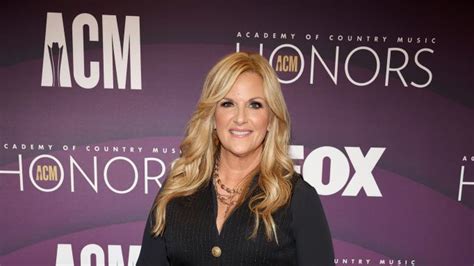
“The View” executive producer Brian Teta unexpectedly interrupted a live broadcast of the show to address a personal matter, revealing that he had been granted a restraining order. Teta disclosed the situation on-air, citing harassment and stalking by an individual.
NEW YORK – In a rare and startling moment on live television, “The View” executive producer Brian Teta interrupted the broadcast to announce he had obtained a restraining order due to ongoing harassment and stalking. The on-air admission, which occurred during a segment on an unrelated topic, caught viewers and co-hosts by surprise. Teta, typically behind the scenes, stepped into the spotlight to address the serious personal matter, explaining the circumstances that led to his decision to seek legal protection.
Teta’s announcement occurred abruptly during a segment discussing current events. While the co-hosts were engaged in a lively debate, Teta signaled for the show to pause briefly. He then addressed the camera directly, stating, “I want to take a moment to address something personal. Recently, I had to obtain a restraining order due to harassment and stalking.”
The announcement was met with visible surprise and concern from the co-hosts, including Whoopi Goldberg, Joy Behar, Sara Haines, Sunny Hostin, and Alyssa Farah Griffin. The women paused their discussion to listen intently as Teta continued to explain the situation.
“This has been a difficult and unsettling experience for me and my family,” Teta explained. “I felt it was important to address it publicly, both to protect myself and my family, and to raise awareness about the seriousness of harassment and stalking.”
Teta did not disclose specific details about the individual involved or the nature of the harassment, citing legal and privacy concerns. He emphasized that the matter is currently being handled through the legal system and that he is cooperating fully with authorities.
Following Teta’s announcement, Whoopi Goldberg, the moderator of “The View,” expressed her support for Teta and condemned the harassment he had endured. “Brian, we are all here for you,” Goldberg said. “No one should have to go through what you’ve been through. We stand with you and your family.”
The other co-hosts echoed Goldberg’s sentiments, offering words of encouragement and support. The show then transitioned back to its regular programming, but the unexpected announcement left a palpable sense of concern and solidarity among the hosts and crew.
News of Teta’s restraining order quickly spread across social media and online news outlets, generating widespread discussion and support for the executive producer. Many viewers praised Teta for his courage in addressing the issue publicly and for raising awareness about the impact of harassment and stalking.
Legal experts noted that obtaining a restraining order is a significant step, indicating that Teta had presented credible evidence to a court that he was in imminent danger of harm. Restraining orders, also known as protective orders, are legal measures designed to protect individuals from harassment, stalking, threats, or violence.
The incident underscores the increasing prevalence of harassment and stalking, both online and offline, and the importance of seeking legal protection when necessary. Law enforcement agencies and advocacy groups emphasize that victims of harassment and stalking should report incidents to the authorities and seek support from qualified professionals.
Brian Teta has been the executive producer of “The View” since 2014. Under his leadership, the show has continued to be a prominent platform for discussing current events, political issues, and social topics. Teta is widely respected in the television industry for his creative vision and his commitment to producing high-quality programming.
The on-air announcement of Teta’s restraining order is a rare and unusual event, highlighting the personal challenges that individuals face even while working in high-profile positions. The incident serves as a reminder that harassment and stalking can affect anyone, regardless of their public profile, and that seeking legal protection is a legitimate and necessary response to such threats.
The situation has prompted discussions about workplace safety and the importance of providing support for employees who experience harassment or stalking. Many organizations are implementing policies and programs to address these issues and to create a safe and respectful work environment for all employees.
The incident also highlights the role of media in raising awareness about harassment and stalking. By addressing the issue publicly, Teta has helped to break the silence surrounding these crimes and to encourage other victims to come forward and seek help.
In the days following Teta’s announcement, “The View” has continued to address the issue of harassment and stalking, providing resources and information for viewers who may be experiencing similar situations. The show has also featured interviews with legal experts and advocates who can offer guidance and support to victims of these crimes.
The response to Teta’s announcement has been overwhelmingly positive, with many viewers expressing their appreciation for his courage and his willingness to speak out about a difficult personal matter. The incident has also sparked a broader conversation about the need for greater awareness and prevention efforts to combat harassment and stalking in all its forms.
As the legal proceedings related to Teta’s restraining order continue, the situation serves as a reminder of the importance of respecting personal boundaries and of holding perpetrators of harassment and stalking accountable for their actions. The incident also underscores the resilience and strength of individuals who have experienced these crimes and the importance of providing them with the support and resources they need to heal and recover.
The events surrounding Brian Teta’s restraining order have had a significant impact on “The View” and the broader media landscape. The incident has raised awareness about the prevalence of harassment and stalking, highlighted the importance of seeking legal protection when necessary, and sparked conversations about workplace safety and the role of media in addressing these issues. As the situation continues to unfold, it is clear that the lessons learned from this experience will have a lasting impact on individuals, organizations, and communities across the country. The show, known for its lively debates and diverse perspectives, took a somber turn as the executive producer brought a deeply personal matter to the forefront, emphasizing the reality that harassment and stalking can affect anyone, regardless of their public profile or professional success.
The public revelation by Brian Teta has not only brought attention to his personal ordeal but has also served as a catalyst for broader discussions about the resources available to victims of harassment and stalking, and the legal avenues they can pursue to protect themselves and their families. It also underscores the need for greater vigilance and proactive measures to prevent such incidents from occurring in the first place.
Teta’s courageous decision to address the issue publicly has resonated with many viewers who have experienced similar situations, creating a sense of solidarity and encouraging others to come forward and seek help. The incident has also prompted organizations to review their policies and procedures for addressing harassment and stalking, and to ensure that they are providing adequate support for employees who may be affected.
The ongoing impact of this situation is likely to extend beyond the immediate aftermath, shaping the way that harassment and stalking are addressed in the media and in society as a whole. By speaking out about his experience, Brian Teta has made a significant contribution to the fight against these crimes and has empowered others to take action to protect themselves and their communities.
The situation serves as a stark reminder that while “The View” is a platform for discussing public issues and engaging in lively debates, it is also a workplace where individuals are vulnerable to the same challenges and threats that affect people in all walks of life. The support shown by the co-hosts and the outpouring of public sympathy for Teta underscores the importance of creating a culture of empathy and understanding in the workplace, where individuals feel safe and supported in addressing personal challenges.
In conclusion, the on-air announcement of Brian Teta’s restraining order has had a profound impact on “The View” and the broader media landscape. The incident has raised awareness about the prevalence of harassment and stalking, highlighted the importance of seeking legal protection when necessary, and sparked conversations about workplace safety and the role of media in addressing these issues. As the situation continues to unfold, it is clear that the lessons learned from this experience will have a lasting impact on individuals, organizations, and communities across the country.
Impact on Workplace Policies and Discussions
The revelation by Teta is likely to prompt increased scrutiny and potential revisions of workplace policies across various industries, including media and entertainment. Companies are now more aware of the importance of having robust protocols in place to address harassment and stalking, ensuring a safe and supportive environment for all employees. This may involve enhanced training programs, confidential reporting mechanisms, and readily available resources for those who experience such issues.
Furthermore, the incident has sparked open discussions about the responsibility of employers to protect their employees, not only within the physical workspace but also in their personal lives, particularly when the harassment stems from their professional roles. These discussions are vital for shaping a more proactive and empathetic approach to workplace safety, fostering a culture where individuals feel empowered to come forward without fear of reprisal.
The impact of this event extends beyond the immediate workplace, influencing broader societal conversations about the prevalence of harassment and stalking. By bringing this issue to the forefront, Teta has helped to destigmatize the experience of being a victim, encouraging others to seek help and support. This ripple effect is crucial for creating a more informed and compassionate society, where victims are empowered and perpetrators are held accountable.
In addition to workplace policies, the incident may also prompt a review of security measures for individuals in high-profile positions. Media personalities and executives often face unique challenges related to privacy and personal safety, making it essential to implement comprehensive security protocols to mitigate potential risks. This may involve enhanced personal security, cybersecurity measures, and proactive monitoring of potential threats.
The discussions surrounding Teta’s situation are also likely to influence the way that media outlets cover harassment and stalking cases. By providing accurate and sensitive reporting, media organizations can help to raise awareness, educate the public, and promote a more nuanced understanding of these complex issues. This includes avoiding sensationalism, protecting the privacy of victims, and providing resources for those who may be affected.
The incident underscores the importance of creating a culture of empathy and support within the workplace. When employees feel safe and supported, they are more likely to come forward and report incidents of harassment or stalking, allowing employers to take appropriate action and prevent further harm. This requires fostering open communication, providing access to mental health resources, and creating a zero-tolerance policy for harassment and stalking.
The ongoing impact of this situation is likely to shape the way that harassment and stalking are addressed in the media and in society as a whole. By speaking out about his experience, Brian Teta has made a significant contribution to the fight against these crimes and has empowered others to take action to protect themselves and their communities.
The Role of Social Media
The immediate dissemination of the news regarding Brian Teta’s restraining order was significantly amplified by social media. Platforms like Twitter, Facebook, and Instagram became hubs for discussion, speculation, and expressions of support. This highlights the pervasive role social media plays in shaping public perception and accelerating the spread of information, both accurate and inaccurate.
In the context of harassment and stalking, social media can be a double-edged sword. While it can provide a platform for victims to share their stories and connect with support networks, it can also be a tool for perpetrators to engage in online harassment and stalking. The anonymity afforded by social media can embolden harassers, making it more difficult to identify and hold them accountable.
The incident involving Teta underscores the need for greater vigilance and proactive measures to address online harassment and stalking. This includes implementing stricter content moderation policies, providing resources for victims of online abuse, and educating users about responsible online behavior. Social media companies have a responsibility to create a safe and respectful online environment for all users, and to take swift action against those who violate their policies.
The use of social media in this case also raises questions about the balance between privacy and public interest. While Teta chose to address the issue publicly, many victims of harassment and stalking prefer to remain anonymous. It is important to respect the privacy of victims and to avoid sensationalizing their stories. Media outlets should exercise caution when reporting on these cases, and should avoid publishing information that could put victims at risk.
The social media response to Teta’s announcement also highlights the importance of critical thinking and media literacy. In an age of information overload, it is essential to be able to distinguish between credible sources and unreliable sources, and to avoid spreading misinformation. Social media users should be wary of sensational headlines and unverified claims, and should always seek out multiple sources of information before forming an opinion.
The role of social media in this case underscores the need for ongoing dialogue and collaboration between social media companies, law enforcement agencies, and advocacy groups to address online harassment and stalking. By working together, these stakeholders can develop more effective strategies for preventing online abuse, protecting victims, and holding perpetrators accountable.
FAQ Section:
1. What exactly happened with Brian Teta, the executive producer of “The View?”
Brian Teta announced live on “The View” that he had obtained a restraining order due to ongoing harassment and stalking. He stated that it had been a difficult experience for him and his family and that he wanted to raise awareness about the seriousness of harassment and stalking.
2. Why did Brian Teta announce this information on air?
Teta stated that he chose to address the issue publicly to protect himself and his family and to raise awareness about the seriousness of harassment and stalking.
3. What kind of support did Brian Teta receive from his co-hosts on “The View?”
Whoopi Goldberg and the other co-hosts expressed their support for Teta and condemned the harassment he had endured. Goldberg stated, “Brian, we are all here for you,” and the other hosts echoed her sentiments, offering words of encouragement and support.
4. Has Brian Teta released any details about the person who is harassing him or the nature of the harassment?
No, Teta did not disclose specific details about the individual involved or the nature of the harassment, citing legal and privacy concerns. He emphasized that the matter is currently being handled through the legal system.
5. What is the significance of obtaining a restraining order in this context?
Obtaining a restraining order indicates that Teta presented credible evidence to a court that he was in imminent danger of harm. Restraining orders are legal measures designed to protect individuals from harassment, stalking, threats, or violence. They are a significant step in ensuring personal safety.









